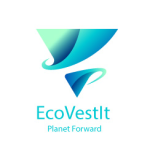Insights from EHL’s 2025 Sustainable Investing Forum
On June 12, 2025, the EHL and Asteria Investment Managers hosted their third annual Sustainable Investing Forum at EHL’s flagship campus in Lausanne. This year’s discussions centered around the significance of shareholder engagement as a vital component in driving sustainable investment strategies. The event once again attracted a diverse group of academics and industry experts, fostering a rich dialogue on sustainability.
ESG is Important to Investors
The forum began with a presentation by Michael Ryf, a PhD candidate from the University of Bern. His talk, “When ESG ratings change does it affect pricing of firms’ cost of debt?”, revealed that companies boasting higher ESG (Environmental, Social, and Governance) ratings tend to enjoy lower debt costs. After analyzing data following a methodological change by Refinitiv ESG on April 6, 2020, Ryf noted a drop of 10 points in ESG scores, which corresponded to a 9% rise in debt spreads. Additionally, the study indicated that investors are more inclined to divest from loans associated with downgraded companies. However, Ryf questioned the durability of these findings, pondering whether the initial impact diminished after six months and if external factors like the Covid-19 pandemic or the 2015 Paris Agreement had any effect. Regardless, he affirmed that debt investors do indeed pay attention to ESG ratings.
What Are Your Investment Preferences?
Tobias Wekhof, a postdoctoral researcher at ETH Zürich, posed a thought-provoking question to attendees: What drives your investment decisions? While answers typically included risk, returns, and performance, Wekhof’s research revealed that sustainability emerged as a top priority for over half of Swiss retail investors. This highlights a growing awareness of sustainable investing, although it’s paired with low Sustainable Finance Literacy (SFL), which poses a barrier to green investment. The lack of standardized sustainability ratings complicates responsible investing, akin to navigating a complex maze. To address this, Wekhof suggested that even investors with limited financial literacy tend to favor ESG products. He advocated for equipping banks with a brief educational presentation on sustainable investing to improve clients’ SFL, ultimately leading to more ESG-aligned investment decisions. Data showed that informed investors are gradually shifting their portfolios away from products lacking clear sustainability objectives in favor of those with explicit commitments.
Cultivating Responsible Investors
Adam Aoun, a finance professor at EHL’s Singapore campus, provided insights into the Asian market’s perspective on ESG. He noted that ESG principles have yet to become ingrained in the thinking of many investors in Asia. Aoun raised the question of whether ESG education should be integrated into finance curricula, emphasizing that these skills are becoming essential rather than optional. He pointed out the multitude of ESG frameworks and standards, which can be overwhelming. In his classes, Aoun encourages students to adopt a critical approach to finance and sustainability. He also raised a rhetorical question about the compatibility of sustainability and finance, illustrating the ongoing debate about whether companies can thrive while doing good. Aoun identified several challenges, including the tension between immediate profits and long-term sustainability, the risk of greenwashing, and the need for robust accountability measures. He concluded that a responsible investor is one who continually seeks to ask better, more insightful questions.
Engaging With High Emitting Companies
Philippe Rey, a seasoned manager at Holcim, found himself in a challenging position, as the cement industry accounted for 6% of Switzerland’s CO2 emissions in 2020. He acknowledged that cement, often viewed as an unsustainable product, is nevertheless vital to global consumption, second only to water. Rey outlined Holcim’s ambitious goals to decarbonize its cement production by reducing CO2 emissions in Switzerland by 30%. He insisted that sustainability is key to the firm’s long-term survival, even when immediate returns on investment may not be evident. He explained that convincing investors of the significance of sustainability took over a decade. Professor Aoun emphasized that transparency and honesty with investors are crucial. Another panelist, Florence Hugard from the Enterprise for Society Center, highlighted the importance of concrete commitments to issues such as biodiversity and climate change, as well as the significance of timing in ESG announcements. Hugard noted that collaborative efforts among investors can enhance the effectiveness of active ownership, resulting in better long-term performance for targeted companies. Throughout the discussion, participants probed Rey about Holcim’s communication of its sustainability strategy and its engagement with shareholders, to which he responded that the company actively dialogues with investors and invites them to see its operations firsthand to better understand its commitment to sustainability.
Crypto as a Sustainable Asset Class
This year’s forum also included discussions on the potential of crypto assets as a sustainable investment option. Jullien Godat from the crypto firm L1D explored the foundational aspects of this emerging industry, which promises a decentralized internet and direct value exchanges without intermediaries. Although there are still concerns regarding ESG factors such as energy consumption and governance, crypto assets present intriguing opportunities for enhancing financial access for marginalized populations. The evolution of Web 3.0 may lead to new investment avenues that align with green finance and sustainable economic systems. The forum featured engaging conversations among industry leaders, and academic presentations illuminated fresh research insights, creating a dynamic environment for discussing the challenges and prospects of sustainable investing in today’s complex landscape. As the forum looks ahead to its fourth edition in 2026, it promises to address real-world sustainability challenges and unveil innovative solutions that institutional investors will encounter in their asset allocation strategies.

